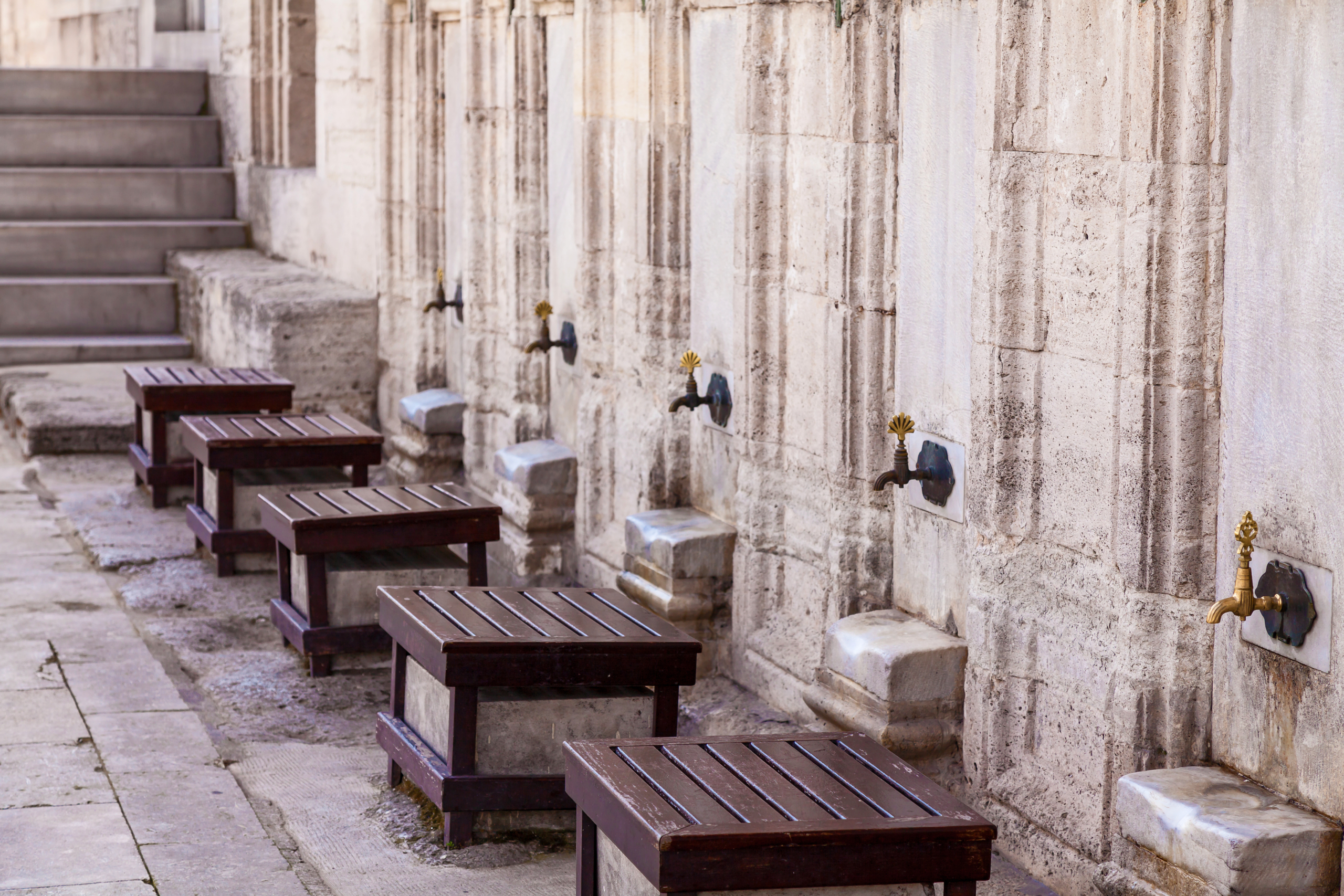The Complete Ghusl
Question: It had recently come to my attention that I have been found my ghusl wrong for many years (20 years plus). I now realize that rinsing both the mouth and nose is a requirement. I did not do this as was never taught this. Are all my historic fasts, Salats, and Quran recitation invalid of 20 years plus invalid? Have I been sinning all these years, do I need to make all these up again under the Hanafi fiqh?
Answer:
Assalamulaykum,
I hope you’re doing well, insha’Allah.
You should consider all those past ritual baths (ghusl) valid. This is because there is a difference of opinion among the mainstream schools of Sunni Islam about whether washing mouth and nose is (a) obligatory or (b) sunna in the ritual bath.
In your current practice, make sure to rinse mouth and nose—and strive to perform a full sunna ghusl, as described by the wives of the Prophet (peace and blessings be upon him).
The Sunna Ghusl
The sunna ghusl begins with (1) washing one’s private parts; (2) washing away any filth on the body; (3) performing a full wudu—clothed, with all its sunnas—and then (4) washing one’s body three complete times, beginning with the head each time, rubbing at least once [Shurunbulali, Maraqi al-Falah]. In doing so, intend to follow the beautiful example of the Beloved Messenger of Allah (peace & blessings be upon him & his folk), and to seek the Pleasure of Allah.
The Difference of Opinion Regarding Washing Mouth and Nose
While washing mouth and nose is considered obligatory in the Hanafi school, [Marghinani, Hidaya] in some other schools, including the Shafi’i school, it is sunna [Reliance of the Traveller].
In current practice, one shouldn’t “mix and match” (talfiq) between different schools—as this results in inconsistency and unsound combinations of actions [Nablusi, Nihayat al-Tahqiq; Haskafi, al-Durr al-Mukhtar].
Avoiding Having to Make Up Excessive Amounts of Past Prayers One Has Performed
It is, however, permitted to take dispensations from other schools to avoid making up large amounts of past prayers one performed—if the error made is acceptable according to another mainstream school or opinion. This is what we’ve learned from the esteemed late Hanafi jurist of Syria, al-Allama Shaykh Adib Kalla’s (Allah have mercy upon him). However, do consult before making such a judgment yourself.
It remains obligatory to make up missed or clearly invalid past prayers. Imam Nawawi (Allah have mercy upon him) relates scholarly consensus (ijma ‘) regarding this [Nawawi, al-Majmu` Sharh al-Muhadhdhab]. This is due to the clear implications of both Qur’an and Sunna on this matter.
Please see the related answers on making up missed prayers:
https://seekers.flywheelstaging.com/answers/general-counsel/how-do-i-go-about-making-up-the-missed-prayers-of-the-past-7-years/
https://seekers.flywheelstaging.com/answers/hanafi-fiqh/a-reader-on-missed-prayers/
And Allah is the giver of success and facilitation.
Wassalam,
[Shaykh] Faraz Rabbani
Shaykh Faraz Rabbani spent ten years studying with some of the leading scholars of recent times, first in Damascus, and then in Amman, Jordan. His teachers include the foremost theologian of recent times in Damascus, the late Shaykh Adib al-Kallas (may Allah have mercy on him), as well as his student Shaykh Hassan al-Hindi, one of the leading Hanafi fuqaha of the present age. He returned to Canada in 2007, where he founded SeekersGuidance in order to meet the urgent need to spread Islamic knowledge–both online and on the ground–in a reliable, relevant, inspiring, and accessible manner. He is the author of: Absolute Essentials of Islam: Faith, Prayer, and the Path of Salvation According to the Hanafi School (White Thread Press, 2004.) Since 2011, Shaykh Faraz has been named one of the 500 most influential Muslims by the Royal Islamic Strategic Studies Center.
